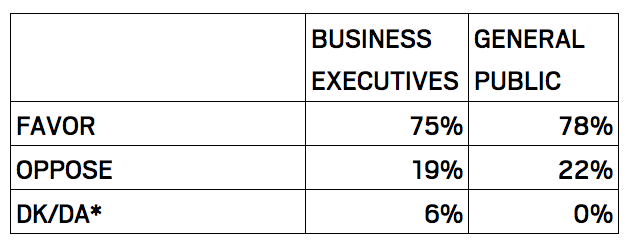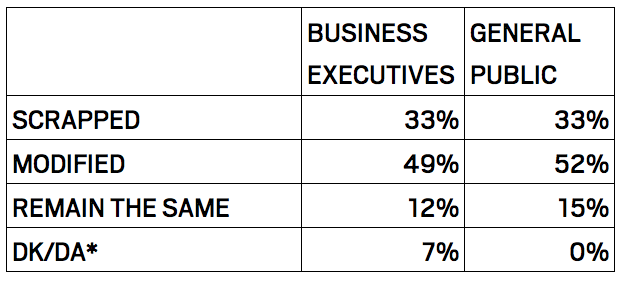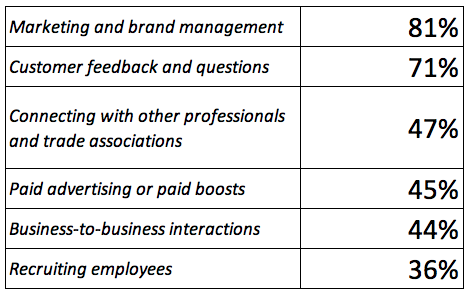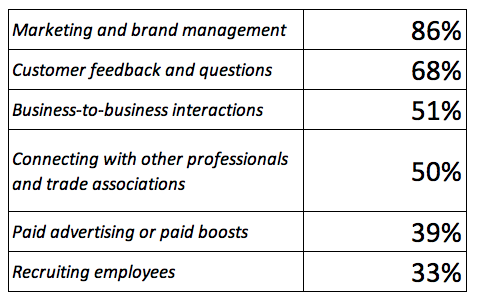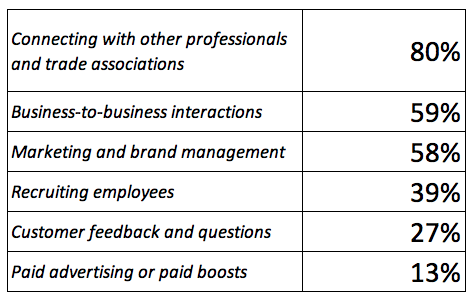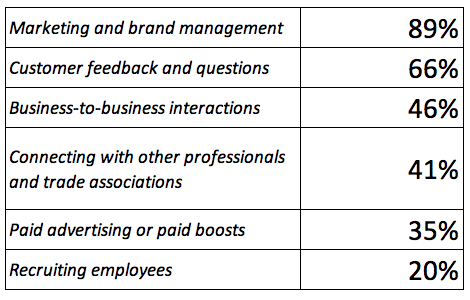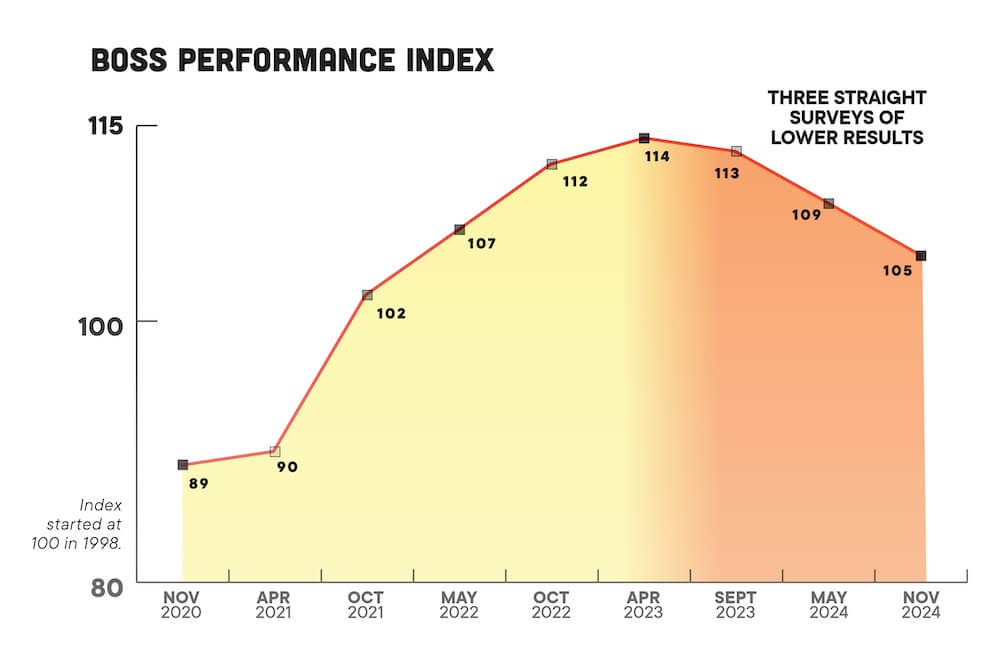Taking Hawai‘i’s Pulse on Important Non-Covid-19 Issues

Our separate surveys of business leaders and the general public reveal opinions on voting by mail and the Jones Act, and how they use social media
When Hawai‘i lawmakers mandated this year’s election would be conducted mostly by mail, a pandemic was not the main motivator. But the timing seems fortuitous in a time when social distancing is commonplace.
We asked about voting by mail in two local surveys conducted in April: the BOSS Survey of 404 business executives and the 808 Poll of 482 members of the general public. We started by explaining the issue:
Starting this year, most Hawai‘i voters will no longer vote in traditional polling places like schools and community centers on primary and general election days. Ballots will automatically be mailed to all registered voters. Only eight polling stations statewide will take walk-in voters.
Survey respondents were then asked if they favored or opposed this initiative and the vast majority in both groups favored mail-in voting.
Jones Act
We explored opinions on the federal Jones Act, which has been a subject of political and economic debate in Hawai‘i for decades. Each respondent was presented with the following statement:
The Jones Act restricts shipping between the U.S. and Hawai‘i to U.S.-owned and -operated companies using American-built ships and American crews.
Research respondents were then asked if they were familiar with this law.
Among the general public:
- More men (46%) than women (29%) said they had heard of the Jones Act before taking part in the survey.
- Awareness of the Jones Act was higher among more educated and more affluent groups. For example, among those with a college degree, 46% had heard of the Jones Act beforehand, but only 28% of those without a college degree.
Next, those respondents in both surveys who were familiar with the Jones Act were asked for their opinions on its future. Should it be:
The results indicate that the vast majority of Hawai‘i residents who knew about the Jones Act in advance would like it changed or ended.
Using Social Media
Business representatives were asked if the company where they work uses these social media to regularly conduct business of any type. We also asked the general public if they regularly use the same social media. Respondents in both surveys could pick as many as they used.
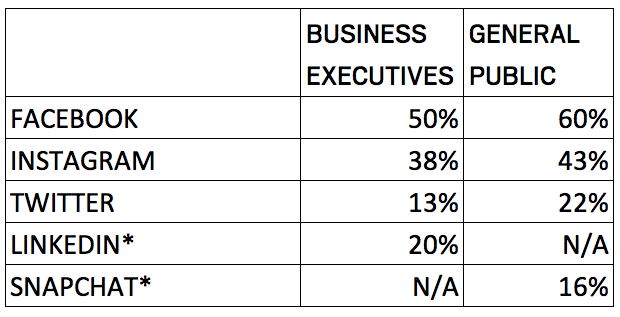
* Only business executives were asked about LinkedIn and only the general public was asked about Snapchat
In the BOSS Survey:
- Neighbor Island companies (58%) were more likely to use Facebook regularly than O‘ahu companies (46%).
- Retail companies (11%) were less likely to use LinkedIn regularly compared to nonretail businesses (22%).
- However, retailers (51%) were more likely to use Instagram regularly than nonretail businesses (35%).
Using Social Media for Different Business Purposes
The various social media were used by businesses in different ways, so we explored those differences.
Facebook: The 203 executives who said their businesses used Facebook regularly were asked how many ways they used it.
Among retailers, 93% said they used Facebook for marketing.
Instagram: The 158 executives who said their businesses used Instagram regularly were asked how they used it.
LinkedIn: The 79 executives who said their businesses used LinkedIn regularly were asked how they used it.
Twitter: The 55 executives who said their businesses used Twitter regularly were asked how they used it.
BOSS Methodology
BOSS stands for Business Outlook and Sentiment Survey. The BOSS Survey was conducted by the research team at the Anthology Marketing Group. They created their sample using a listing of local companies purchased from a third-party business sample provider as well as Hawaii Business Magazine’s Top 250 list and classified yellow pages listings.
The sample of companies was stratified based on number of employees. Small businesses were divided into two subgroups. Businesses with two to nine employees were designated as “very small” and those with 10 to 49 employees were designated as “small.” Medium-size companies were those with 50 to 99 employees while companies with 100 or more employees were classified as “large.” The goal was to complete interviews with executives heading 50 businesses in each of the large and medium sectors, with 300 interviews falling into the two small business categories.
A secondary goal was to complete interviews with people at 100 businesses who describe their companies as deriving a relatively significant proportion of their revenues from the retail industry. A total of 88 retail companies were surveyed in this segment.
A total of 404 random interviews on all the major islands were conducted from March 30 to April 17, 2020. The data was weighted to reflect the proper proportions of each company segment based on number of employees as reported by the Hawai‘i Department of Labor. A sample of this size has a margin of error of plus or minus 5.0 percentage points with a 95% level of confidence.
808 Poll Methodology
The research team at Anthology Marketing Group conducted an online survey, based on a sample of email addresses purchased from a third-party supplier that specializes in such samples for online surveys. This sample was augmented by Anthology Research’s proprietary panel of respondents who have agreed to take part in surveys.
The field work began on April 3, 2020, and ended on April 8. A total of 482 completed surveys were collected statewide. The resulting data was weighted to reflect population estimates of adults 18 and older on each Hawaiian island.
The margin of error for a total sample of this size is plus or minus 4.51 percentage points with a 95% confidence level.
Each respondent was screened to ensure they were at least 18 years of age and resided on the island for which they were being contacted
